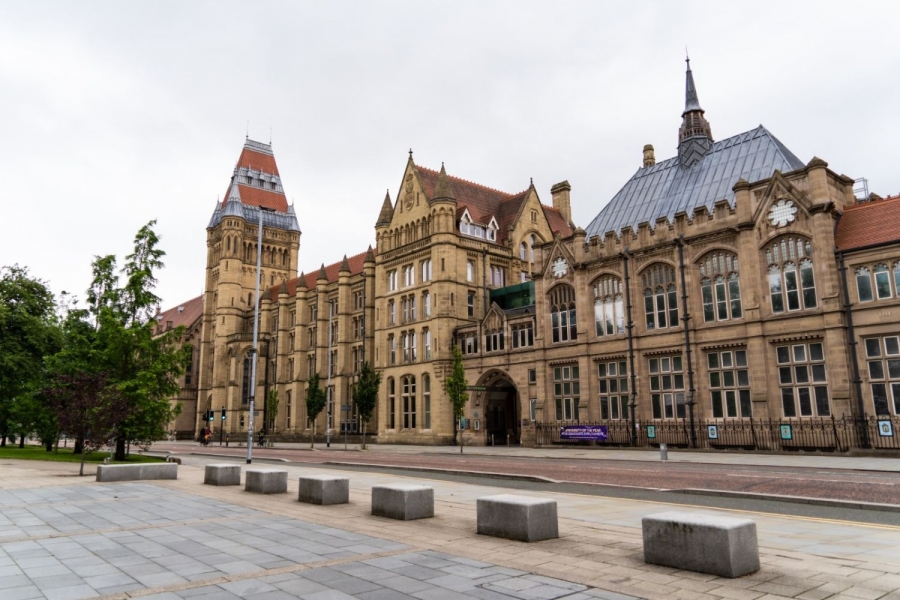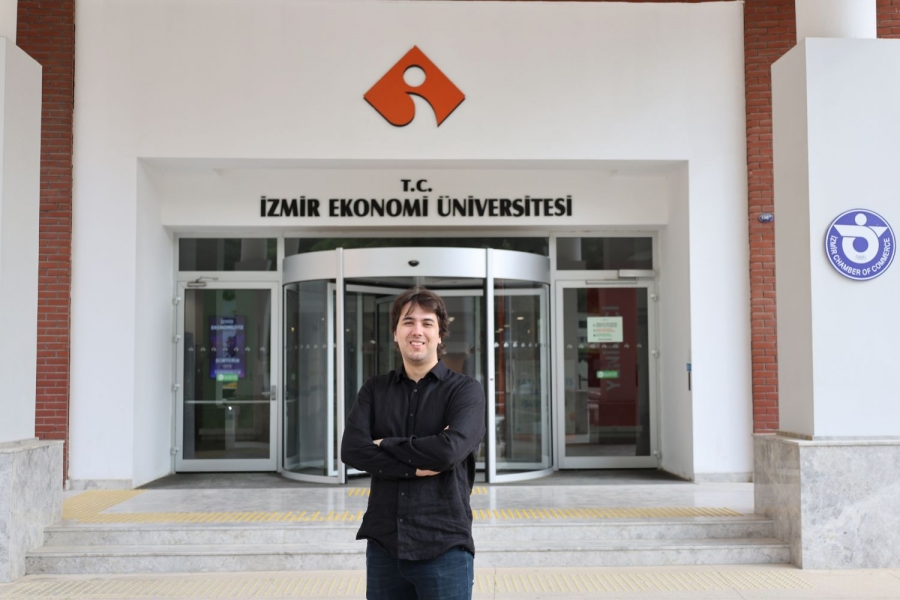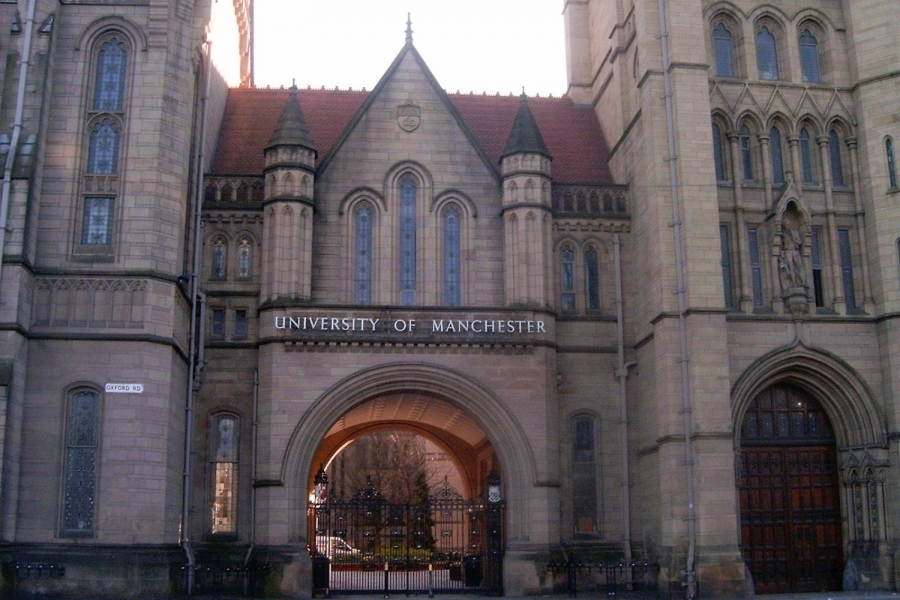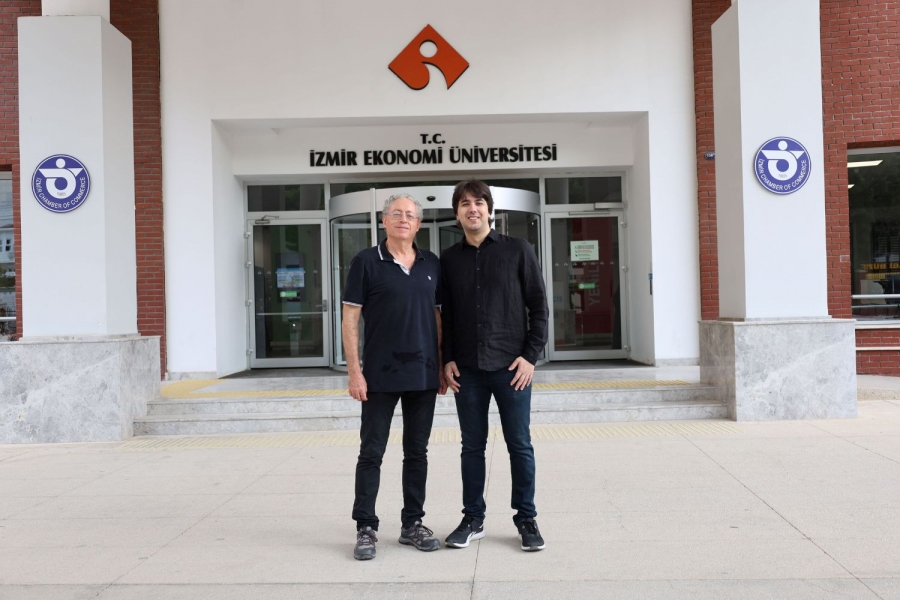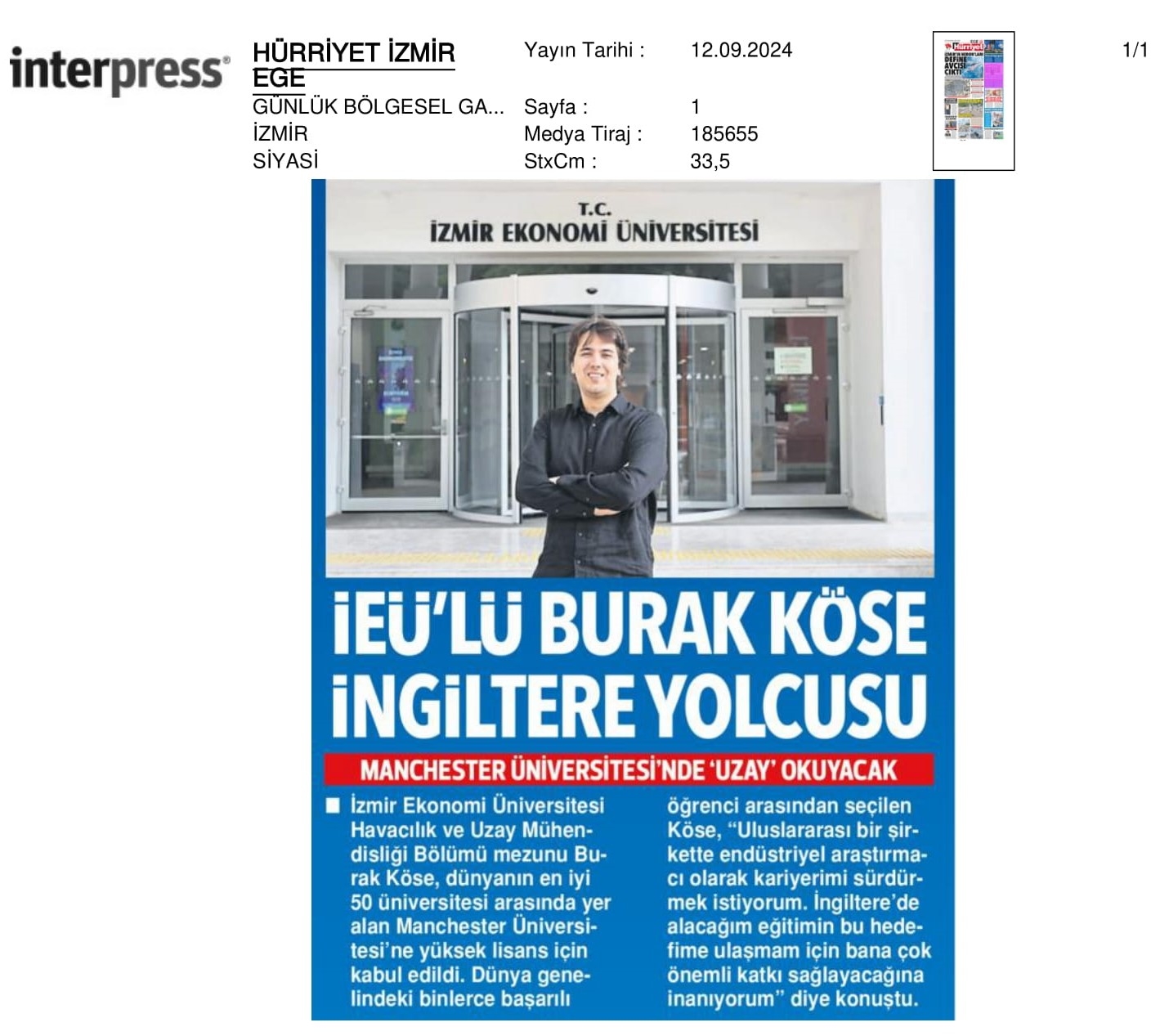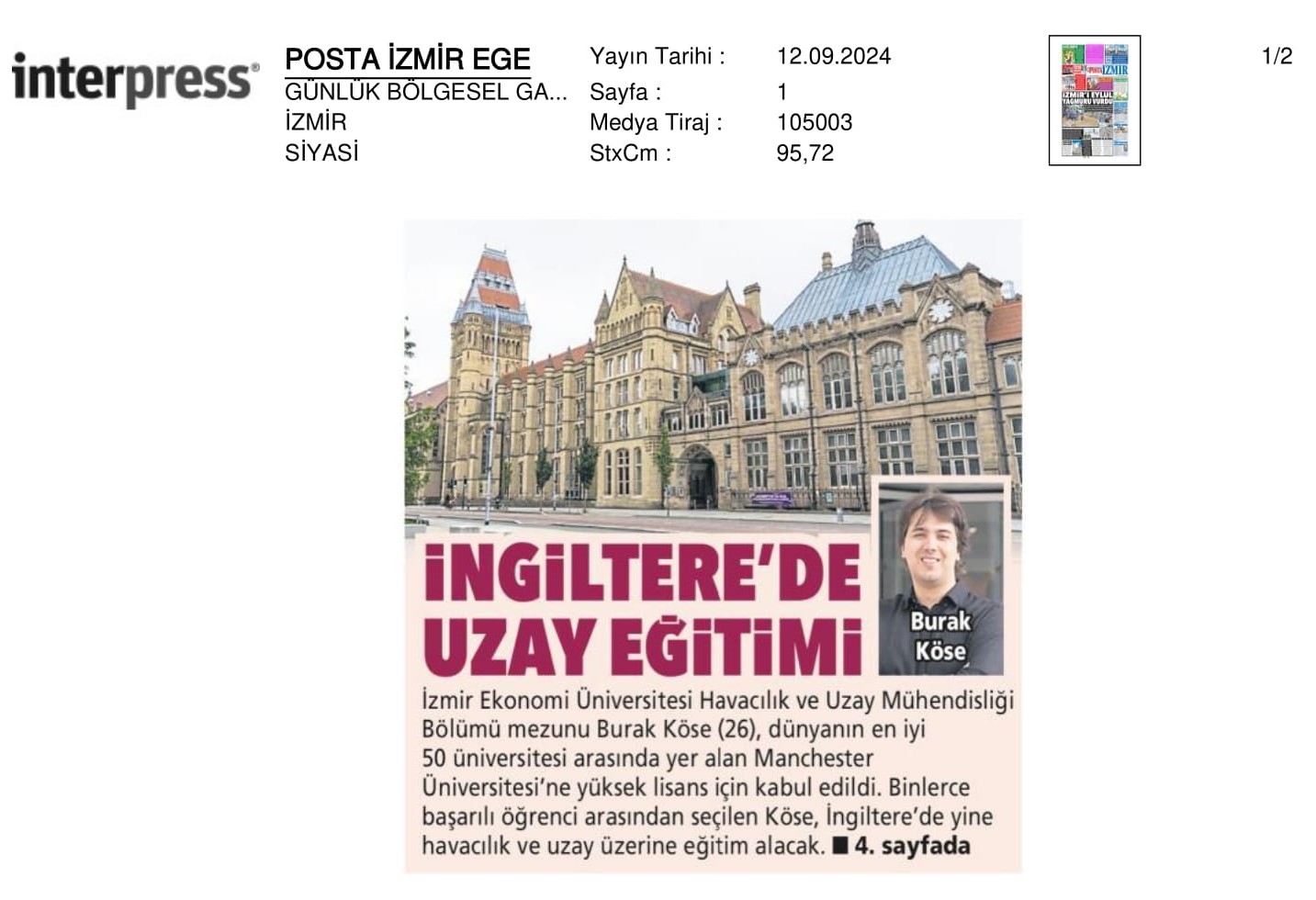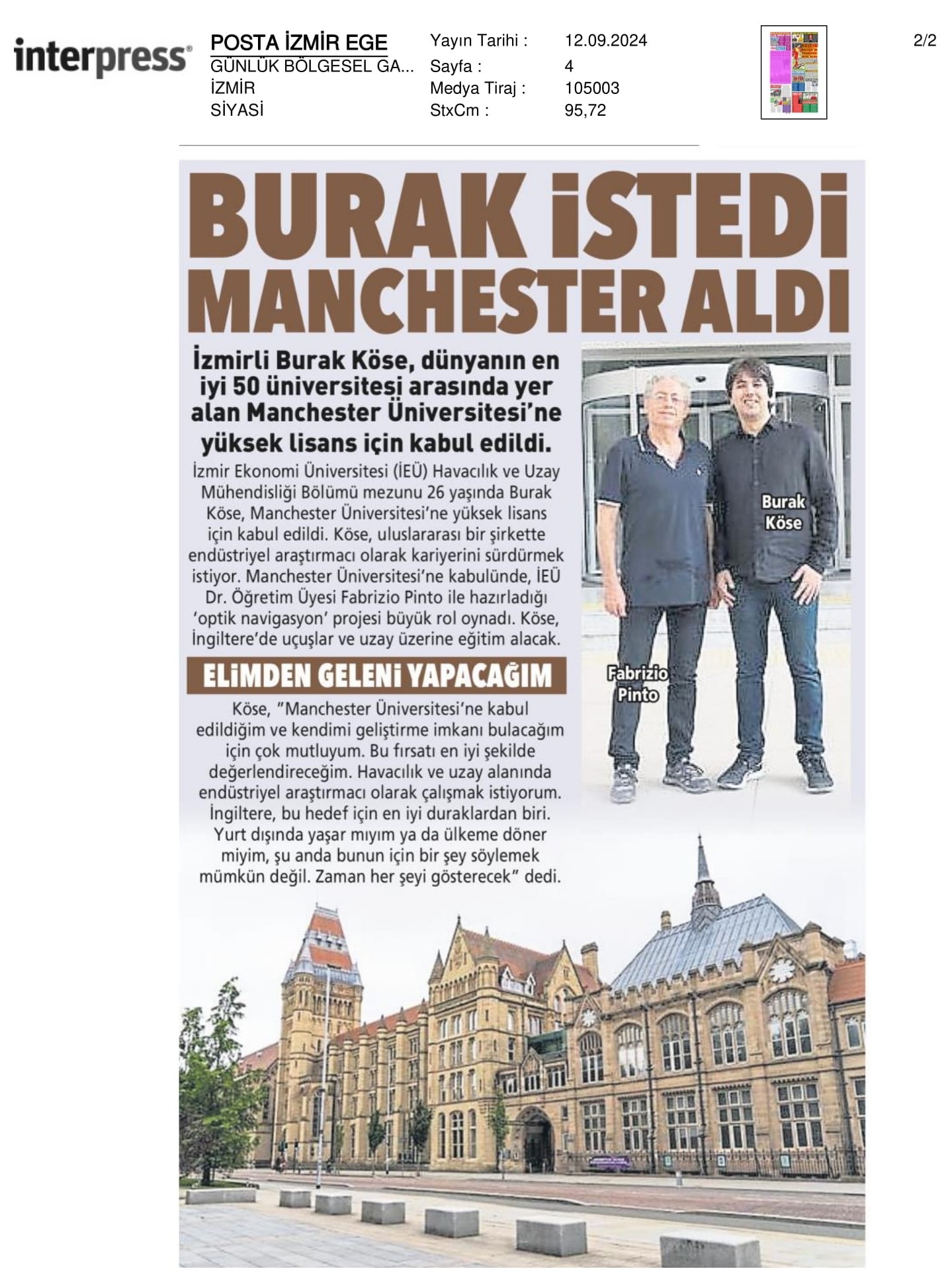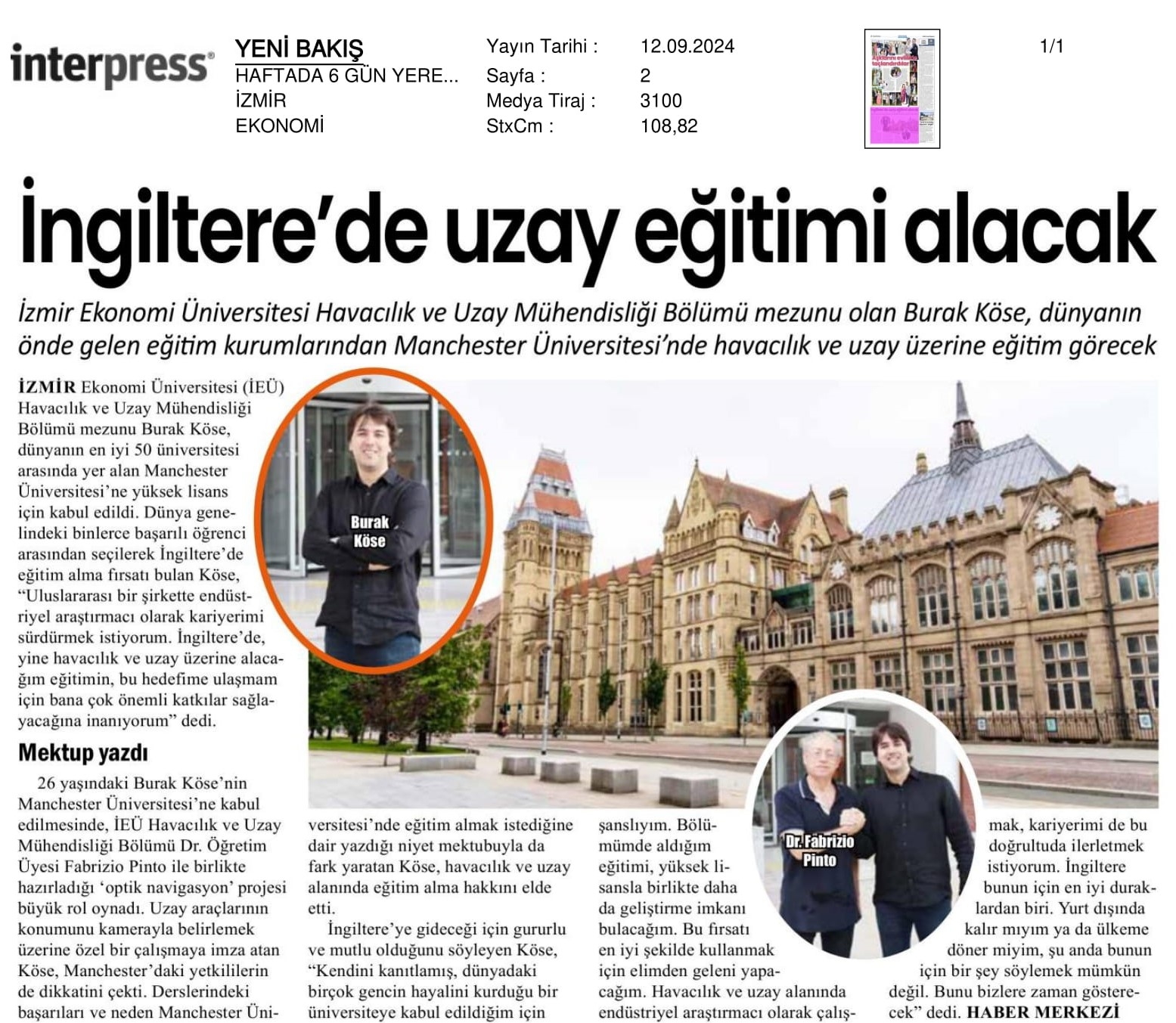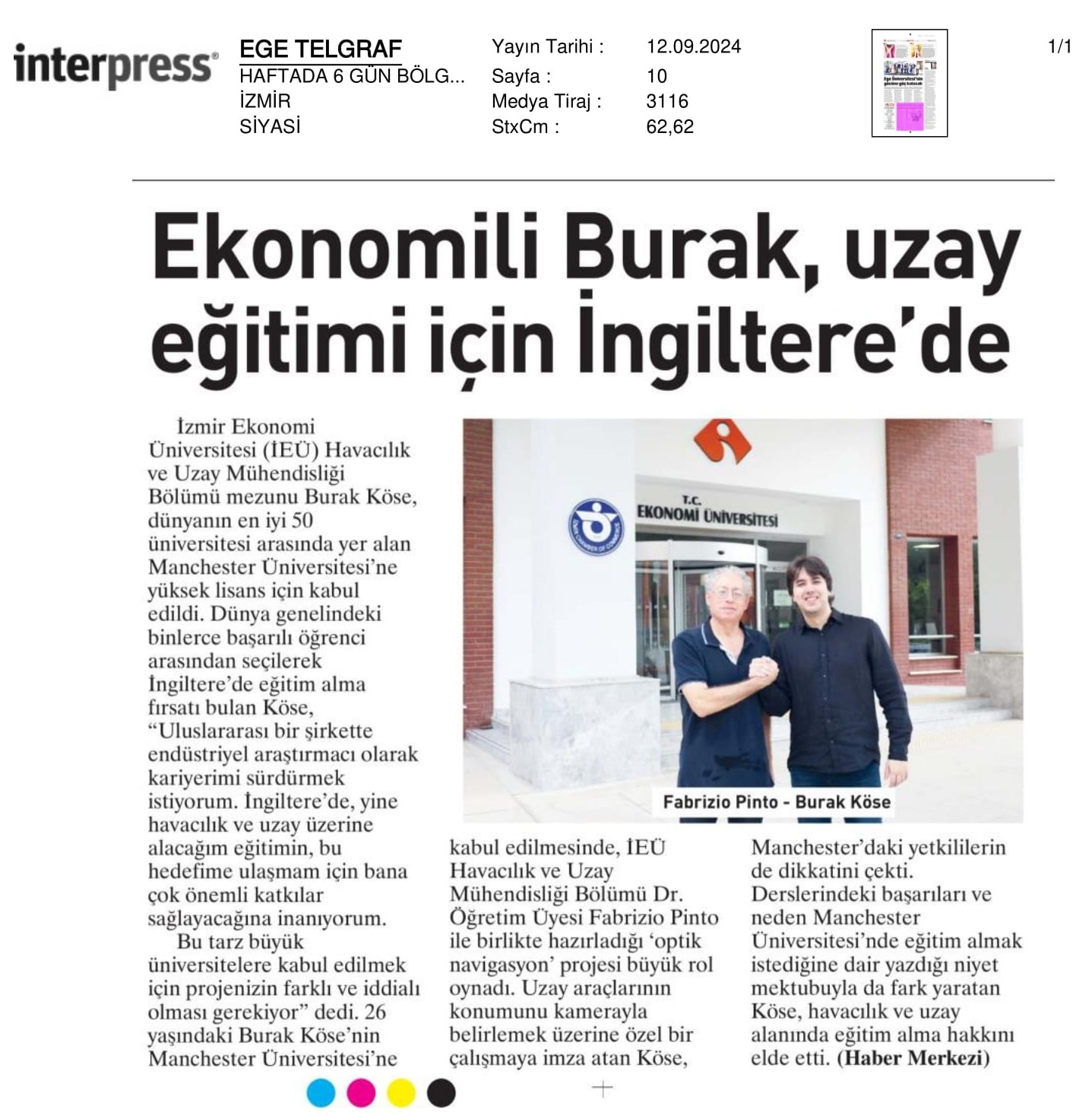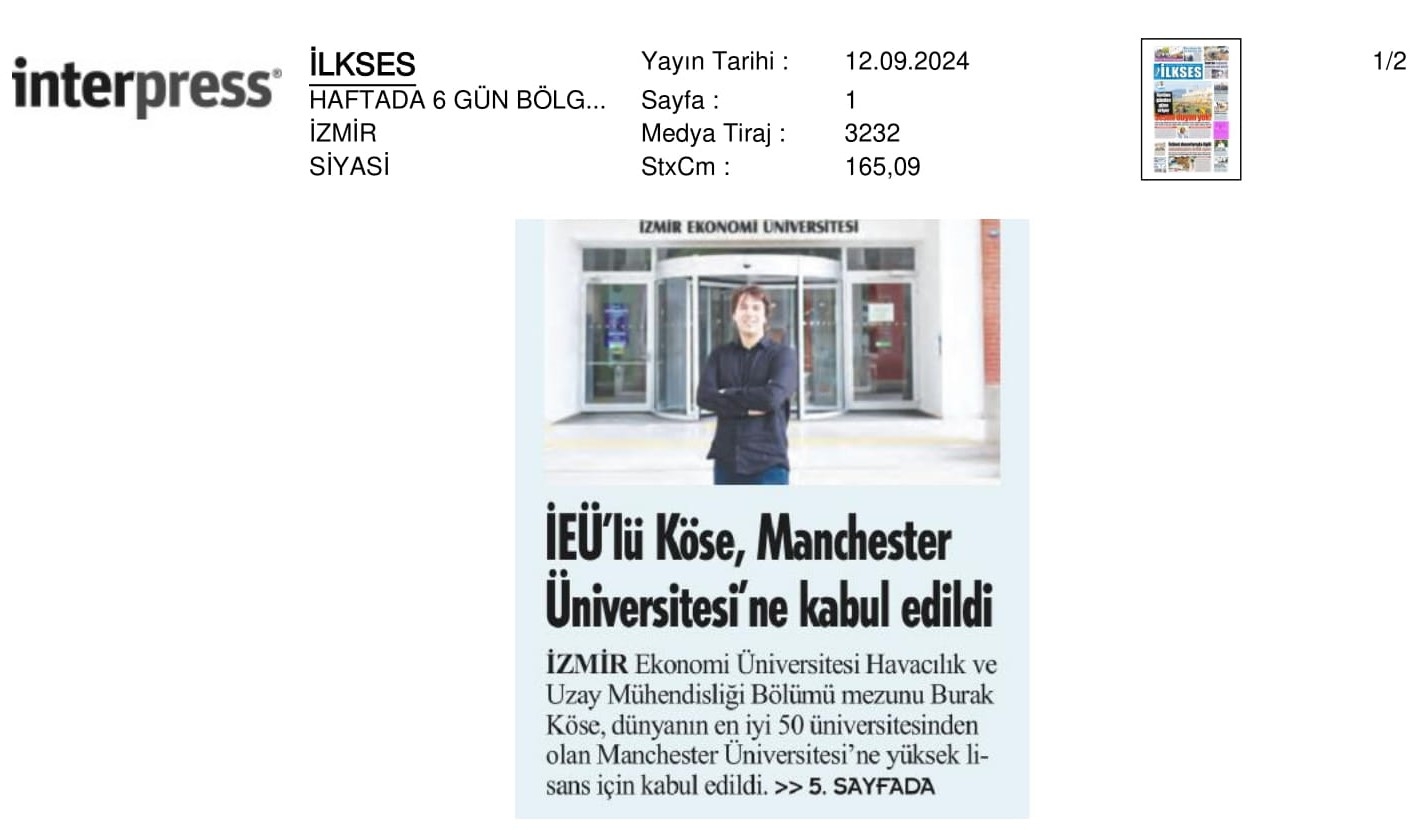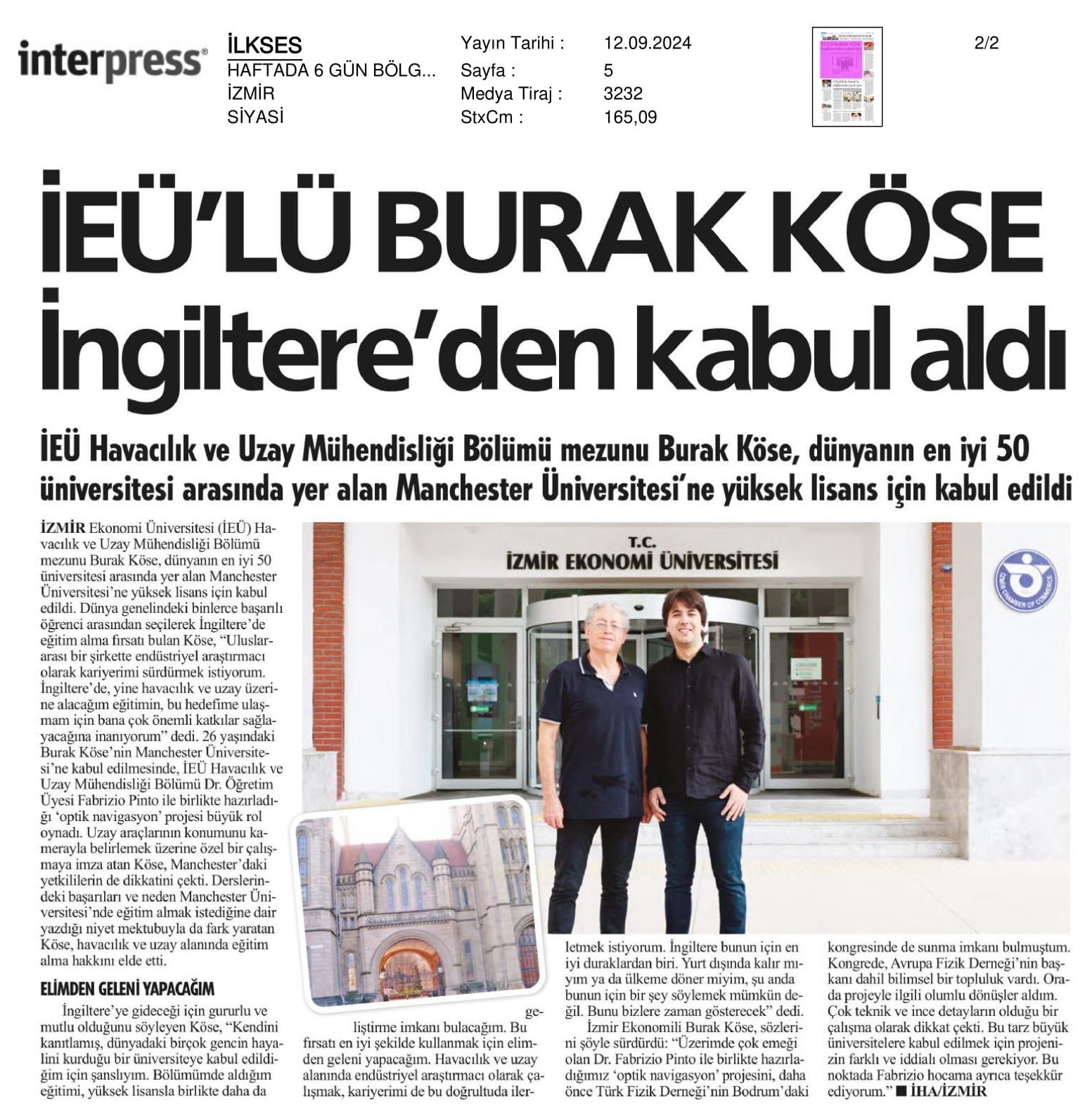Space Education in England
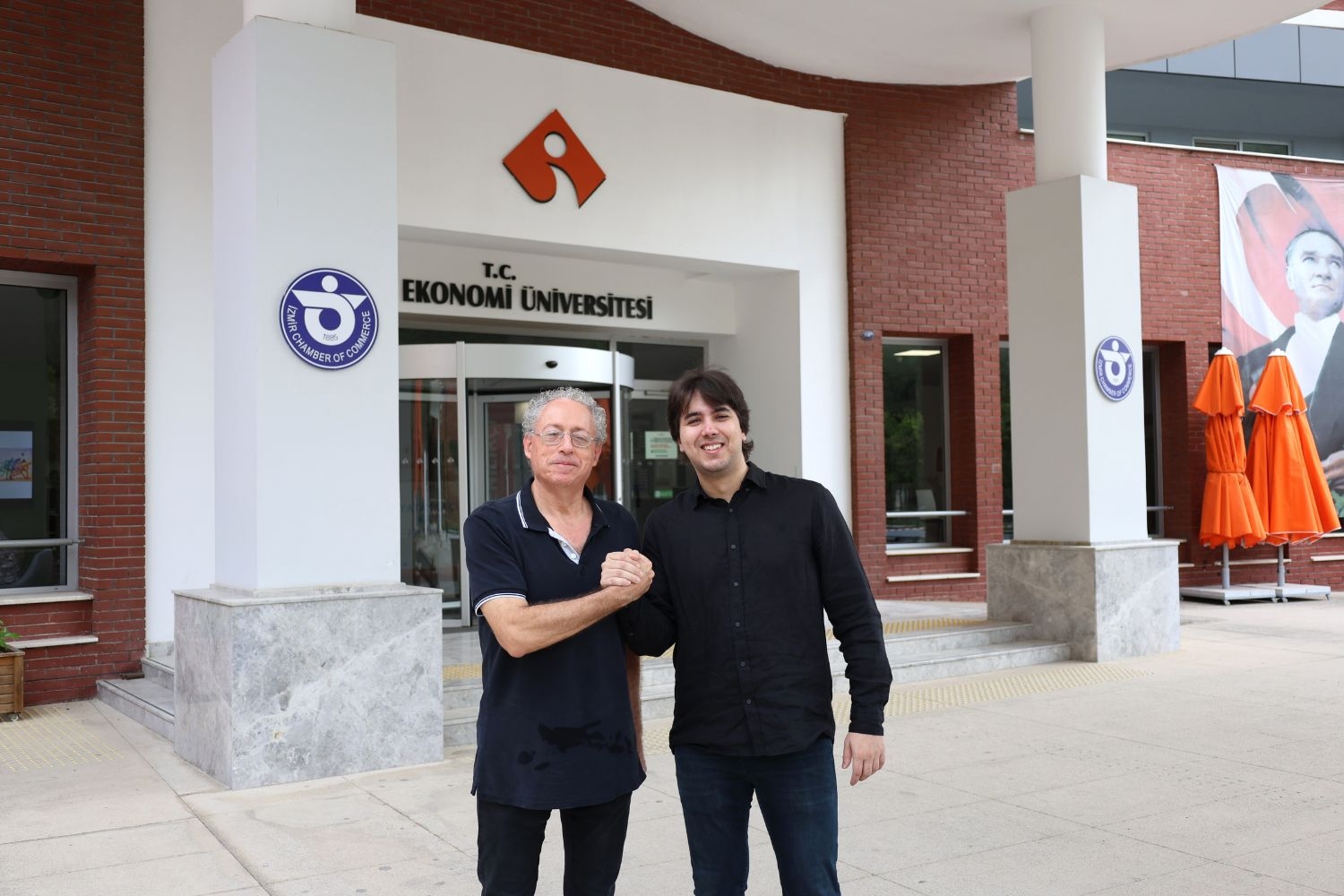
Burak Köse, a graduate of the Department of Aerospace Engineering at Izmir University of Economics (IUE), has been accepted for a master's degree at the University of Manchester, which ranks among the top 50 universities in the world. Köse, who was selected from thousands of successful students worldwide and earned the opportunity to study in England, said, “I want to continue my career as an industrial researcher in an international company. I believe that the education I will receive in England on aerospace again, will significantly contribute to achieving this goal.”
The ‘optical navigation’ project that 26-year-old Burak Köse prepared together with Asst. Prof. Dr. Fabrizio Pinto, a faculty member in IUE Department of Aerospace Engineering, played a major role in his acceptance to the University of Manchester. Köse, who worked on a special project to determine the position of spacecraft using a camera, attracted the attention of officials in Manchester. With his academic achievements and a statement of purpose explaining why he wanted to study at the University of Manchester, Köse earned the right to receive education in aerospace.
I WILL DO MY BEST
Expressing his pride and happiness in going to England, Köse said, “I feel fortunate to have been accepted to a university that has proven itself and is the dream of many young people around the world. I will have the opportunity to further develop the education I received in my department with a master's degree. I will do my best to make the most of this opportunity. I want to work as an industrial researcher in the aerospace field and advance my career in this direction. England is one of the best stops for this. Whether I stay abroad or return to my country is something I cannot say right now. Time will tell.”
UNIQUE AND AMBITIOUS
IUE graduate Burak Köse continued as follows: “I had the chance to present the ‘optical navigation’ project, which I prepared with Asst. Prof. Dr. Fabrizio Pinto, who has made great contributions to me, at the congress of the Turkish Physical Society in Bodrum. There was a scientific community at the congress, including the president of the European Physical Society. I received positive feedback about the project there. It was a study that drew attention due to its highly technical and intricate details. To be accepted by such prestigious universities, your project needs to be unique and ambitious. At this point, I would like to especially thank Professor Fabrizio.”



